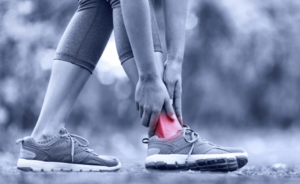Introduction
Whiplash is a frequent and often debilitating injury resulting from car accidents, particularly rear-end collisions. In this detailed blog post, we will discuss five key ways our clinic’s physiotherapy services can help alleviate whiplash symptoms and promote recovery.
Have you been in a car accident with ICBC?
If you have been in a car accident and are dealing with ICBC, we offer a program specifically designed to help with your recovery. To learn more about our PAARCC program, click here.
What Happens When You Get Whiplash
Whiplash is a neck injury that typically occurs during car accidents, especially in rear-end collisions. This injury results when the head is suddenly jerked backwards and then forwards, or vice versa, putting extreme stress on the cervical spine. The rapid movements force the neck muscles and ligaments to stretch beyond their normal range of motion, leading to trauma in the muscles and tissues of the neck. This mechanism can also cause the intervertebral joints, disc materials, and nerve roots to become damaged. Symptoms of whiplash may vary, but commonly include:
- Neck pain and stiffness
- Headaches, most often starting at the base of the skull
- Dizziness
- Blurred vision
- Fatigue
- Difficulty concentrating or memory problems
- Ringing in the ears (tinnitus)
How Physiotherapy Can Help Whiplash
While some individuals recover within a few weeks, others may experience prolonged symptoms lasting months or even years, emphasizing the importance of effective treatment and rehabilitation through physiotherapy.
1. Pain Management
Effective pain management is the cornerstone of our treatment approach for whiplash at Vancouver Physiotherapy Hub. Our experienced physiotherapists employ a variety of techniques designed to reduce pain and reliance on medications:
- Therapeutic Exercises: We tailor gentle stretching and strengthening exercises to each patient’s specific condition, focusing on reducing neck stiffness and improving range of motion.
- Manual Therapy: Our skilled therapists use hands-on techniques, such as massage and manipulation of the neck muscles and spine, to enhance mobility and decrease pain.
- Heat and Cold Therapy: We guide our patients on the safe home use of heat to relax tight muscles and cold to reduce inflammation and alleviate sharp pain.
2. Restoration of Normal Neck Function and Mobility
Restoring normal neck function and mobility is a critical goal in our treatment of whiplash patients at Vancouver Physiotherapy Hub.
- Mobilization Techniques: We perform gentle joint and muscle movements to enhance neck motion and reduce discomfort.
- Postural Training: Our therapists address post-accident posture issues, teaching correct techniques to lessen neck strain and prevent further injury.
- Ergonomic Advice: For patients who spend many hours at a desk or behind the wheel, we provide expert advice on making ergonomic adjustments to maintain proper neck posture and minimize ongoing cervical strain.
3. Strengthening Neck Muscles
At our clinic, strengthening the neck muscles is an essential part of the rehabilitation process for whiplash patients, helping to stabilize the neck and reduce the likelihood of future discomfort.
- Targeted Exercises: Our physiotherapists design exercises to specifically strengthen the muscles supporting the neck.
- Resistance Training: As recovery progresses, we introduce light resistance to boost muscle strength and endurance.
- Functional Training: We focus on incorporating the neck muscles into daily activities, ensuring they are robust enough to handle typical stresses.
4. Reducing Headache and Dizziness
Headaches and dizziness are common whiplash symptoms that can impact daily life. Our physiotherapists at Vancouver Physiotherapy Hub utilize specialized techniques to mitigate these issues:
- Pain Management: We employ strategies like cervical spine mobilization and stretching to alleviate headaches originating from the neck.
- Vestibular Rehabilitation: For dizziness linked to inner ear issues caused by whiplash, we offer vestibular rehabilitation exercises designed to improve balance and reduce vertigo.
5. Education and Long-Term Health Maintenance
Education is a vital part of our approach at Vancouver Physiotherapy Hub, empowering our patients to manage their condition effectively and prevent future injuries.
- Self-Management Techniques: We teach relaxation techniques and proper use of heat and ice for pain relief.
- Activity Modification: We advise on modifying activities to avoid aggravating the neck injury and promote healing.
- Preventative Strategies: Our physiotherapists guide patients in exercises and lifestyle choices that strengthen the neck and improve resilience.
Conclusion
If you’re struggling with a whiplash injury from a car accident, Vancouver Physiotherapy Hub is here to help. Our dedicated team of physiotherapists combines expert knowledge with compassionate care to help you return to your daily activities as quickly and safely as possible. We are committed to providing personalized care that addresses the unique needs of each patient, ensuring a successful recovery and improved quality of life.
For more information about our services or to schedule an appointment, please visit our website or contact us directly. Let Vancouver Physiotherapy Hub help you heal and regain the strength and flexibility you need to live your life without limitations.






